Officers
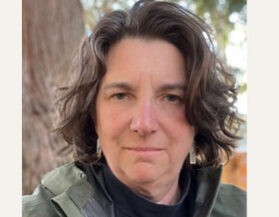
Lisa Amato
President
Principal, Amato Mediation
Bio
Lisa is a civil litigation mediator and fourth generation Oregonian. Her grandparents and great-grandparents were farmers and ranchers in rural and urban regions throughout Oregon. She was raised harvesting from the land and was taught to harvest only what is needed because all life depends on a healthy and connected ecosystem.
Increased land and water degradation and the impact of population growth in the Columbia River region inspired Lisa to become involved with the Columbia Land Trust back in 2015. In 2017, Lisa joined the board of directors. She is drawn to the land trust’s strategic planning and collaboration with urban and rural communities, Indigenous Nations, public partners, timber companies, farmers, and private landowners to conserve and steward through a science-based lens.
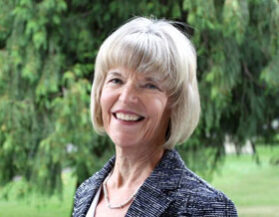
Barbara Johnson
Secretary
Superior Court Judge, Clark County, WA. (retired)
Bio
Barbara grew up during the period when career opportunities were opening up for women. She began college at the University of Washington with ambition to become a math teacher. By the time she was a senior, she was invited to a program encouraging women to apply to law school. This led to a career in the legal profession, which included work as a deputy prosecuting attorney in King County, private practice in Vancouver, Washington and Portland, Oregon, and ultimately to becoming the first woman judge in Clark County. After serving twenty-eight years as a Superior Court Judge, she retired from the bench and now does alternative dispute resolution as a mediator and arbitrator.
An internship in the summer of 1973 with the office of the United States Attorney in Seattle inspired her to join Columbia Land Trust’s Board of Directors. As an intern she assisted the lead attorney for the United States representing Indian tribes to enforce treaty fishing rights, the case of United States v. Washington, which is now known as the Boldt Decision. This extraordinary experience for a law student led to a continuing interest in Indian Law, the preservation of the rights of indigenous people in the Pacific Northwest, and the survival of salmon and the environment, which are priorities of the Columbia Land Trust.
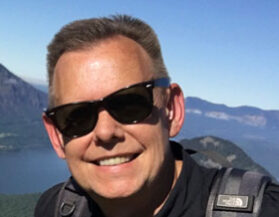
Tim Spofford
Treasurer
Vice President of Operations, Hewlett-Packard (retired)
Bio
Tim has been on the land trust finance committee since 2017, a board member since 2019, and Treasurer since 2022. Tim, and his wife of 44 years have two children that are grown and married, and one grandson. He enjoys hiking, cycling, and backpacking around the world and on many of the properties conserved by Columbia Land Trust.
Tim spent his career leading teams across the US and around the world retiring from Hewlett-Packard as Vice President of Operations after 33 years. He continues to support organizations and individuals who pursue their potential through coaching and consulting.
Tim is committed to protecting the lands of the Columbia Basin for wildlife and ensuring access to these lands for future generations.
Board Members
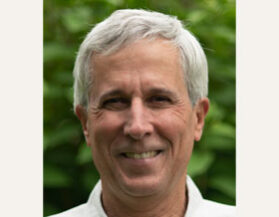
Charles Bishop
Executive VP of Manufacturing, Pendleton Woolen Mills (retired)
Bio
Charlie is a fifth generation Oregonian who has lived his entire life in close proximity to the Columbia River. He retired from a 40-year career with Pendleton Woolen Mills where he served as Executive Vice President of Manufacturing based in Washougal, WA. While in Washougal, he worked on several community development projects to improve public access to the river. He received a BA in management from Claremont McKenna College and a BS in Engineering from Stanford University. He has served on several for profit and nonprofit boards including Pendleton Woolen Mills, Columbia Land Trust, Columbia Colstor, River View Cemetery Association, and Planned Parenthood.
Charlie is a passionate supporter of Columbia Land Trust’s mission to conserve and care for the vital lands, waters, and wildlife of the Columbia River region through sound science and strong relationships. He believes staying focused on that mission and collaborating with local communities and willing partners is the most effective approach to achieving results.
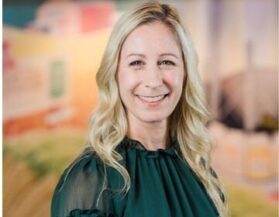
Allyson Borozan
Chief Growth Officer, Bob's Red Mill
Bio
Allyson recently relocated to the Pacific Northwest from Michigan to join Bob’s Red Mill as SVP Marketing and currently Chief Growth Officer. The natural beauty and outdoor lifestyle led her to the region and her belief in the power of nature to break down walls and build community led her to joining Columbia Land Trust.
With a background in Chemical Engineering and Marketing, Allyson applies her technical expertise, strategic vision, and communication expertise to enhance the awareness and visibility of the Columbia Land Trust, using branding, storytelling, and communication to connect more people to the mission.
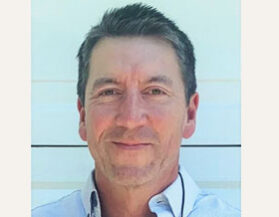
Stephan A. Dillon, P.E.
Western Washington Region Manager, Manulife Forest Management
Bio
Stephan is responsible for leading and managing approximately 260,000 forest acres in the Western Cascade Mountains across Washington, Oregon, and British Columbia, Canada. Stephan holds a bachelor’s degree in forestry engineering from Oregon State University and is a Licensed Professional Engineer in both Washington and Oregon State. Upon graduating, he started work with Weyerhaeuser Company, where his responsibilities spanned all aspects of forest engineering and company harvest management. In 2003, Stephan joined the Hancock Forest Management team. He is the Western Washington Region Manager, Manulife Forest Management and has been instrumental in advancing projects and programs including safety, tethered logging, and various engineering designs related to fish passage.
Stephan is a member of the Society of American Foresters, Washington Farm and Forest Association, and Forest Policy committee member for Washington Forest Protection Association. He is an active board member for the Western Forest Conservation Association and Columbia Land Trust.
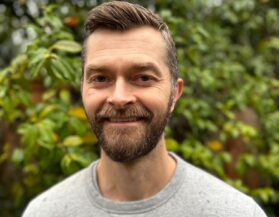
Drew Fletcher
Strategy & Finance, Nike
Bio
Born and raised in Portland, Oregon, Drew has been fortunate to call the Pacific Northwest home for nearly 40 years. From Opal Creek to Mt. Hood, Cougar Reservoir to the Oregon Coast, he has spent decades enjoying and contributing to the protection of the Columbia River Basin. Drew graduated from Dartmouth College in 2007 with a focus on Philosophy and Native American Studies, after which he returned home to complete his Juris Doctor at the University of Oregon.
Since then, he has spent 15 years at Nike, Inc. in leadership positions across strategy & finance. Drew’s passion for the health of our natural environment paired with his almost two decades of experience in multiparty negotiation and transactional execution led him to Columbia Land Trust. Drew is committed to the thoughtful and collaborative conservation mission of Columbia Land Trust and hopes to aid in the collective and durable stewardship of our home.
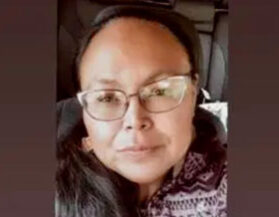
Elaine Harvey
Watershed Department Manager, Columbia River Inter-Tribal Fish Commission
Bio
Elaine, Wanuxni’, is a Yakama Tribal citizen from the Kamiltpah and Willawitiz Bands of the Columbia River. Wanuxni’, is her traditional name and she dedicates her career to protecting and enhancing First Foods and medicines for future generations. Elaine is the Watershed Department Manager for the Columbia River Inter-Tribal Fish Commission and previously worked for the Yakama Nation Fisheries and Resource Management Department for nearly 20 years. Elaine serves on other environmentally focused boards to promote tribal access, habitat restoration, and conservation of important lands and rivers for the future. She brings to the board a viewpoint from an Indigenous perspective and provides Traditional Ecological Knowledge to the staff and fellow board members.
Elaine joined the board of directors in 2019. Elaine believes in the conservation mission that Columbia Land Trust pursues and believes that it is essential to conserve lands especially during this time of climate change. She enjoys serving as a board member and spreading the ‘good’ word of how the Columbia Land Trust is benefiting all in the region it serves.
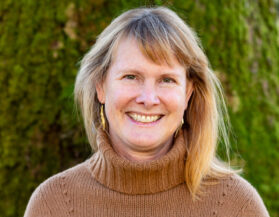
Allison Hensey
Former Director, Willamette River Initiative, Meyer Memorial Trust
Bio
As a former director with Willamette River Initiative and Meyer Memorial Trust, Allison has spent her career in collaborative environmental conservation, working toward thriving communities, rivers, and wildlife habitat through philanthropy, policy advocacy, and cooperative on-the-ground projects.
In her work, she has increased the scale of resources available for environmental conservation in Oregon, strategically bridged funding gaps to enable greater impact, and supported an increase in collaboration, critical information and alignment among groups working within a region to strengthen the human systems protecting landscapes. While she does not practice, she has a degree in environmental law. Allison is honored to be part of Columbia Land Trust’s work to protect a place beloved by so many.
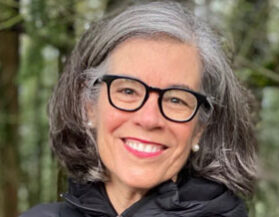
Molly Jones
Community Volunteer
Bio
Molly was introduced to Columbia Land Trust many years ago and, as a part-time resident of the Gorge, was impressed by the land trust’s work focused on saving and restoring habitat—both for salmon and for native plants.
As a long-time advocate for conservation issues and volunteer for the Garden Club of America (GCA), Molly developed a digital publication, ConWatch, designed to educate and inspire action about conservation topics. Currently, Molly is Features Editor for the Bulletin, a quarterly magazine distributed to the 18,000 members of the GCA.
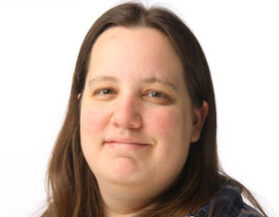
Laura Planck
Technical Specialist, NV5 Geospatial
Bio
Laura grew up in Portland with a love of being outside. She went to school for environmental science, leading to several jobs including vegetation surveys for the forestry department and restoration work on remote islands. After graduating with a master’s in plant biology where she mapped invasive grasses in California, she now works as a lidar specialist. She specializes in working with utility companies to prevent wildfires and other natural disasters.
Laura has been active with the land trust for nearly a decade. She appreciates the depth of knowledge the staff has of the best practices for restoration. She believes the real success of the land trust’s projects is due to a commitment to work with communities, find common goals, and be good neighbors.
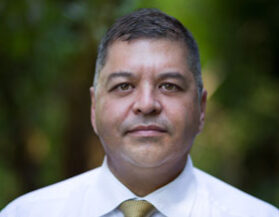
Rudy Salakory
Oregon Fish & Wildlife Policy Analyst, Northwest Power & Conservation Council
Bio
Rudy Salakory is the Conservation Director for Friends of the Columbia Gorge. As a long-time resident of the area, he has spent much of his life enjoying, protecting, and restoring the natural beauty and ecology of Southwest Washington and Northwest Oregon. Rudy is honored to be able to help Columbia Land Trust in any way he can to protect, preserve, and restore the lands and places he loves.
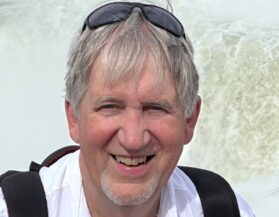
Stephen Shields
Strategic Planning & Leadership Consultant, Second Pursuits, LLC
Bio
Stephen has served on the Columbia Land Trust board for more than a decade, because he believes deeply in what the Land Trust does and how they go about it. He is proud of how staff, leadership and the board pursue and support productive partnerships with communities, tribes, landowners, and government agencies to conserve properties that truly make a difference and create sustainable, long-term benefits for the region. Stephen works as an organizational consultant focused on leadership, strategy, and organizational change and brings a wealth of managerial and leadership experience to the board. He has twenty years of executive management experience with HP, owns his own company and consults with startups, universities, and other nonprofit boards.
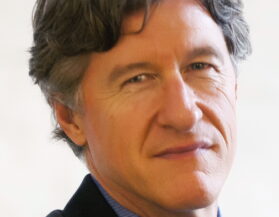
John Streur
Chief Investment Officer, Boston Common Asset Management
Bio
John is a global leader in environment, sustainability, and governance investing, and advises both academic and professional bodies that are working to advance the impact and credibility of ESG investing. He is Chief Investment Officer of All Material Risk Investment Strategies (AMRIS) at Boston Common Asset Management and also a rancher in the Columbia River Gorge. His home is the Little Seven Seven Ranch (L77 Ranch) in Lyle, Washington.
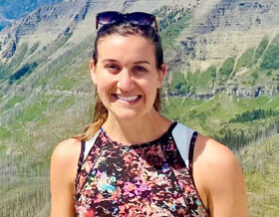
Lindsay Thane
Attorney, Schwabe Williamson & Wyatt
Bio
Lindsay joined the Columbia Land Trust board to support the land trust’s efforts to promote conservation of important wild places in the Pacific Northwest. As a natural resource and environmental attorney, she recognizes the importance of thoughtful conservation and stewardship of the land. Lindsay grew up immersed in the benefits provided by her local land trust, particularly by exploring the open space lands protected by its work. She is enthusiastic about supporting the work of Columbia Land Trust to see that the benefits of thoughtful conservation—like she experienced—extend to communities throughout the Pacific Northwest.
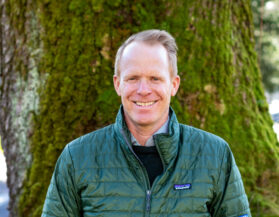
Dougal Williams
CEO, Vista Capital Partners
Bio
Dougal Williams, originally from Sunriver, Oregon, appreciates the importance of vast and connected landscapes and the resources required to preserve them. Dougal is excited to contribute to the Columbia Land Trust’s expansive efforts from his Portland home, where he’s helped build a business and raise a family for the past 25 years. Dougal is the CEO of Vista Capital Partners.